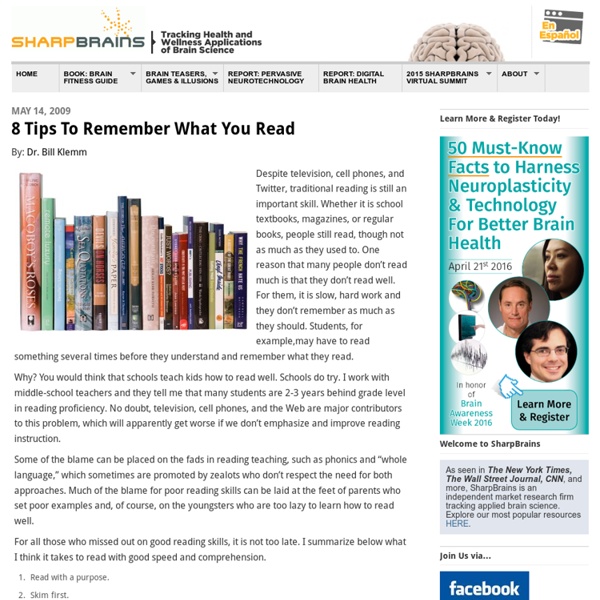en.wikiquote
Treat THESE 15 Ailments SIMPLY By Eating These 15 Foods...
Nature has a cure for anything. This is an old wisdom that many old people still live by. The food that we take from Nature in form of Plants, Fruits, Veggies and many different forms like algae and mushrooms, all contain healing benefits. This is true because everything that Nature produces has a tendency to restore balance and harmony. That’s why Nature can give us the best remedies; because, unlike modern medicine which is known to do more harm to our balance in order to heal one ailment, Nature restores balance in order for the ailment to be healed. Each food has a specific healing attributes and it’s best used for a certain thing, while other food for something else. Here are a some of the foods that can help you restore your health:
What Makes a Successful Therapist-Patient Relationship? | Donna Flagg
Several weekends ago Daphne Merkin wrote a moving piece in the Sunday New York Times Magazine about psychoanalysis and the therapists that go with it. Aside from an eloquent account of her forty years in therapy, I found the questions she raised about its ultimate value intriguing. First, it caused me to reflect on my own experience with psychologists. I've had two. As I get older and witness the prevalence of this endless therapy syndrome and read articles like "My Shrunk Life," by Ms. I wondered why similar conversations never seemed to be a reality for Ms. I know people who religiously sit in their appointments week after week, month after month, year after year and all they are able to do at the end of the day (or week or month or year) is keep talking about what they talk about. Personally, I benefited immensely from what both of my shrinks taught me because they did just that. No B.S. Move on. Start doing, stop thinking. A chance to grow up.
This Is How The Food We Eat Significantly Affects How We Perceive The World...
You have probably heard the saying “You are what you eat.” Well this is not far from the truth! Every piece of food creates a different chemical reaction inside our bodies. Imagine your body like an instrument and different types of food like different pieces of music. Each food plays a different melody through your body by stimulating it to produce certain chemicals. For example chocolate is one melody, bananas are another, and all the other foods are a different melody. With this in mind it’s safe to say that different foods promote different emotions and moods which determine our outlook in a certain moment. When someone is happy they perceive the happy details around them.
Why Smart People Are Stupid | The New Yorker
Editors’ Note: The introductory paragraphs of this post appeared in similar form in an October, 2011, column by Jonah Lehrer for the Wall Street Journal. We regret the duplication of material. Here’s a simple arithmetic question: A bat and ball cost a dollar and ten cents. The bat costs a dollar more than the ball. How much does the ball cost? The vast majority of people respond quickly and confidently, insisting the ball costs ten cents. For more than five decades, Daniel Kahneman, a Nobel Laureate and professor of psychology at Princeton, has been asking questions like this and analyzing our answers. When people face an uncertain situation, they don’t carefully evaluate the information or look up relevant statistics. Although Kahneman is now widely recognized as one of the most influential psychologists of the twentieth century, his work was dismissed for years. The philosopher, it turns out, got it backward. In a lake, there is a patch of lily pads. The results were quite disturbing.
Check this out: '23 Ruthless 'Politely-Worded…
untitled
Check this out: '21 Best Pics Of All Time Of The…
Check this out: 'Get (Almost) Any Book For Free:…
Check this out: 'A List of Books | 623 of the…
[infographic] Fake news or real news? 10 tips to getting the facts for yourself - Stone Soup Creative
I read a good article today on NPR’s All Tech Considered, Fake Or Real? How To Self-Check The News And Get The Facts. Except I figure people who aren’t schooled in figuring out the difference aren’t likely to be reading an NPR article. Is it helpful?
factitious
midnight memoirs' (life lessons.)
listography
Thank you for your suggestions. We take everything to heart, and when time permits, we hope to add these features to listography. android app (no time but maybe someday) private accounts being able to label your folders download all lists followers visibility like or follow a list (outside of the current rss) selectively turn off commenting being able to change the color of every list auto-save feature listography widget browser plug in / bookmarklet timeline view background image stretch vs tile elaborate search capabilities website image grab tool



